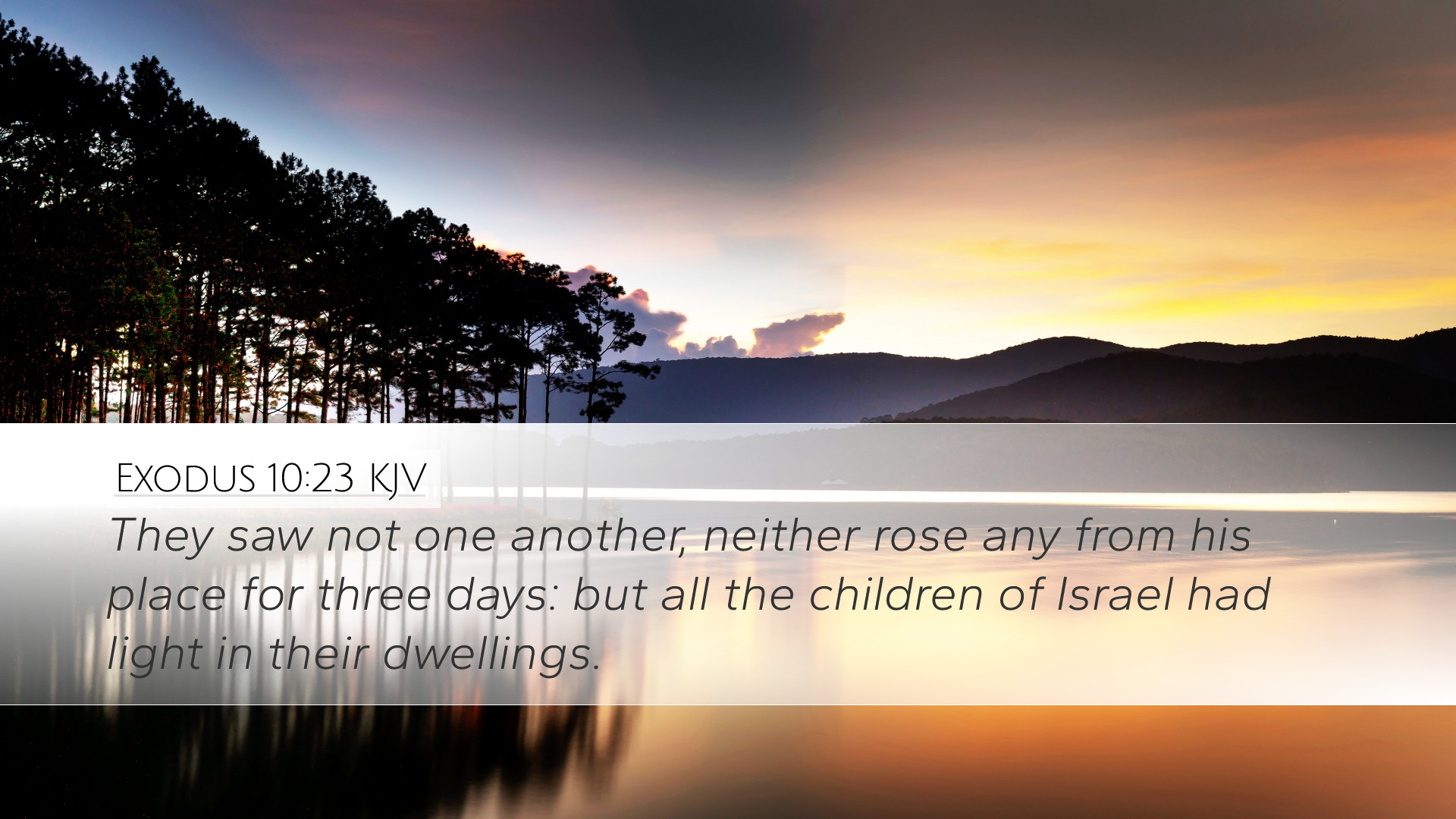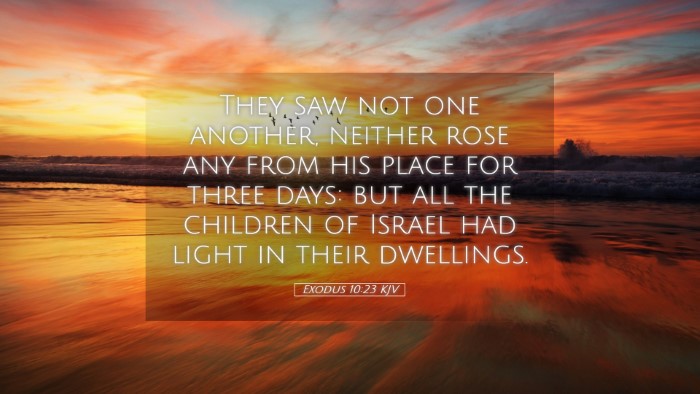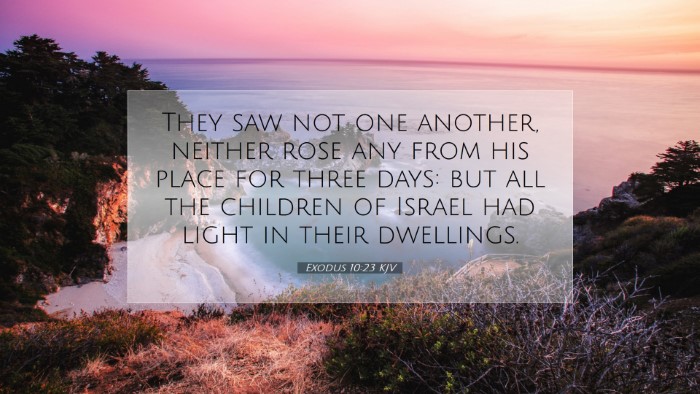Exodus 10:23 - A Commentary
Verse Context: Exodus 10:23 reads, “They did not see one another, nor did anyone rise from his place for three days. But all the people of Israel had light where they lived.” This verse occurs within the narrative of the plagues of Egypt, specifically during the ninth plague, which is the plague of darkness.
General Overview
The plague of darkness represents a significant moment in the confrontation between God and Pharaoh. The darkness was not merely a natural phenomenon but a powerful sign of God’s judgment against the Egyptian deities and their inability to provide light. The contrasting experience of the Israelites, who had light in their dwellings, illustrates God's protection and favor towards His chosen people.
Commentary Insights
Matthew Henry's Commentary
Matthew Henry emphasizes the contrast between the darkness that enveloped Egypt and the light granted to the Israelites. He notes that this darkness was a profound and palpable absence of light for three days, signifying not only physical darkness but also spiritual blindness prevalent in Egypt. Henry writes:
“This darkness may be understood as both a punishment and a sign of the Egyptians' alienation from God, illustrating the consequences of their hardened hearts.”
Henry further explains that the darkness served to show the Egyptians that their gods were powerless against the God of Israel. The Egyptians worshipped sun deities, and this plague directly challenged that worship.
Albert Barnes' Notes on the Bible
Albert Barnes elaborates on the significance of the darkness mentioned in Exodus 10:23. He draws attention to the spiritual implications of such a plague:
“The darkness was not only a sign of divine displeasure but also emblematic of the moral and spiritual blindness that characterized Pharaoh and his court.”
Barnes provides a thorough exegesis on how the darkness's duration and intensity were unprecedented. He notes that not only did it physically isolate the Egyptians, but it also served to deepen their fear and desperation:
- Isolation: The inability to see one another created societal paralysis.
- Spiritual Disarray: The Egyptians were left to confront their own helplessness in the face of divine judgment.
Adam Clarke's Commentary
Adam Clarke interprets the darkness as symbolic of the consequences of sin and rebellion against God. He underscores the nature of the supernatural darkness as a divine warning:
“Darkness, in its essence, indicates a position of estrangement from God, manifesting the state of a people who refuse to acknowledge God's sovereignty.”
Clarke further discusses the implications of the Israelites having light during this period, suggesting:
- Divine Favor: The light among the Israelites is emblematic of God’s protection and presence.
- Separation: This stark contrast signifies God's intent to separate His people from judgment.
Theological Implications
This verse presents profound theological insights regarding God’s sovereignty, judgment, and grace:
- Sovereignty of God: The narrative illustrates God's absolute authority over creation and history. The plagues are not random events but orchestrated actions that reveal God's power over nature and false gods.
- Judgment and Mercy: While the plague of darkness is a severe judgment on Egypt, it simultaneously highlights the mercy extended to Israel. It is a clear reminder of God's covenantal faithfulness in preserving His people.
- Spiritual Vision: The theme of light versus darkness invites reflection on spiritual insight. Just as the Egyptians were hindered by physical darkness, sin blinds individuals to the truth of God. Believers are called to reflect the light of Christ in a world engulfed in darkness.
Concluding Thoughts
Exodus 10:23 serves both as a historical account and a rich source of theological reflection. The darkness signifies judgment upon those who reject God, while the light symbolizes divine favor and protection for those who belong to Him. For pastors, students, theologians, and Bible scholars, this passage encourages deeper contemplation on the nature of God’s justice and mercy, prompting discussions around the implications of spiritual blindness and the call for believers to let their light shine amidst darkness.


